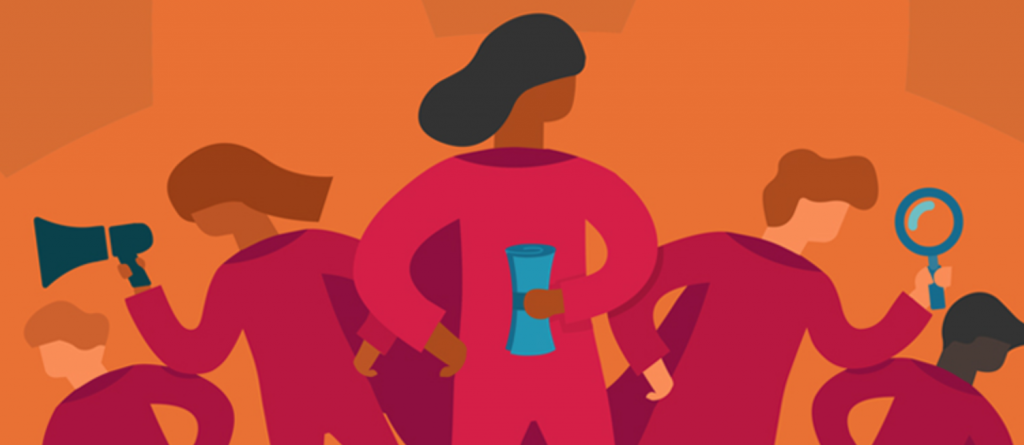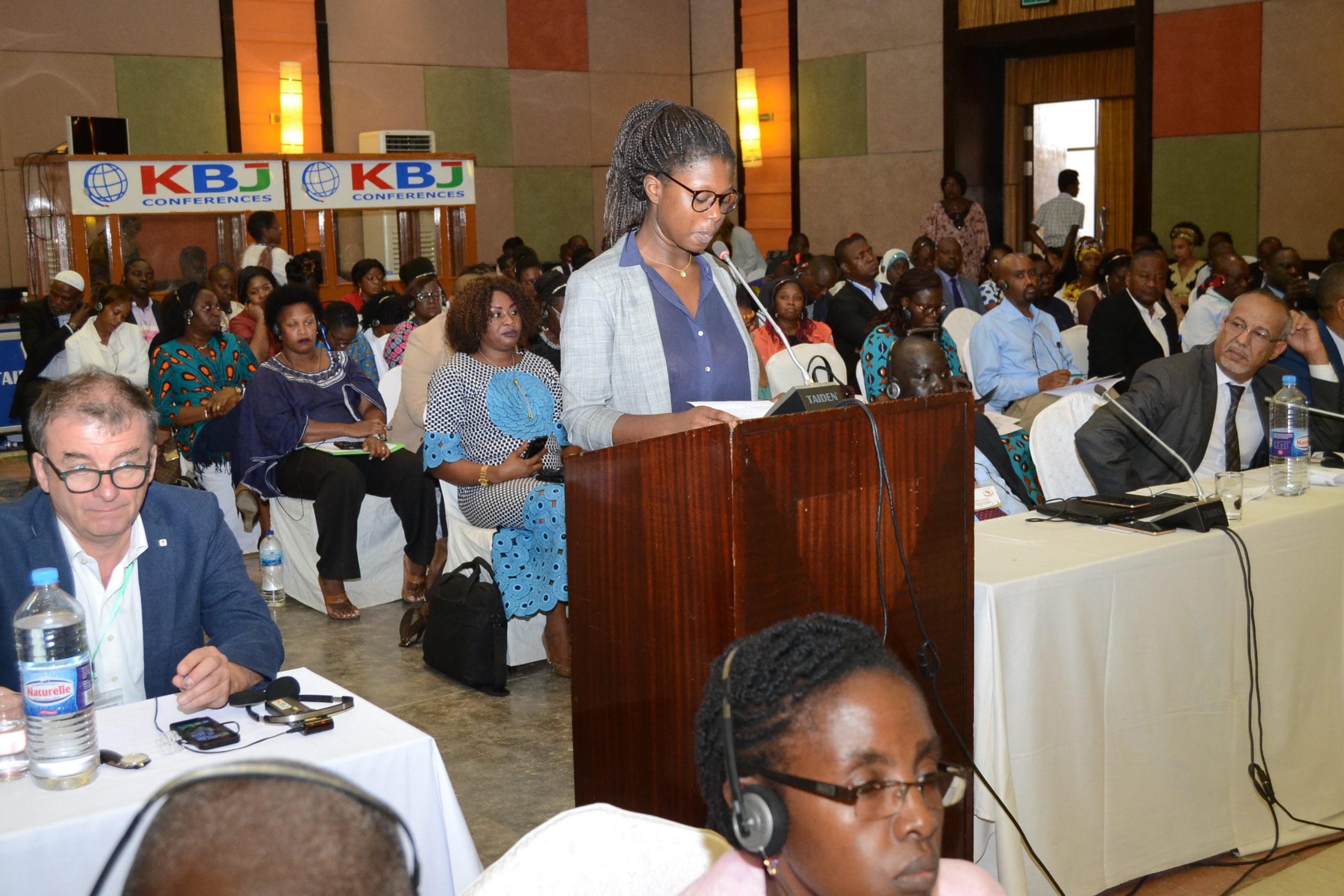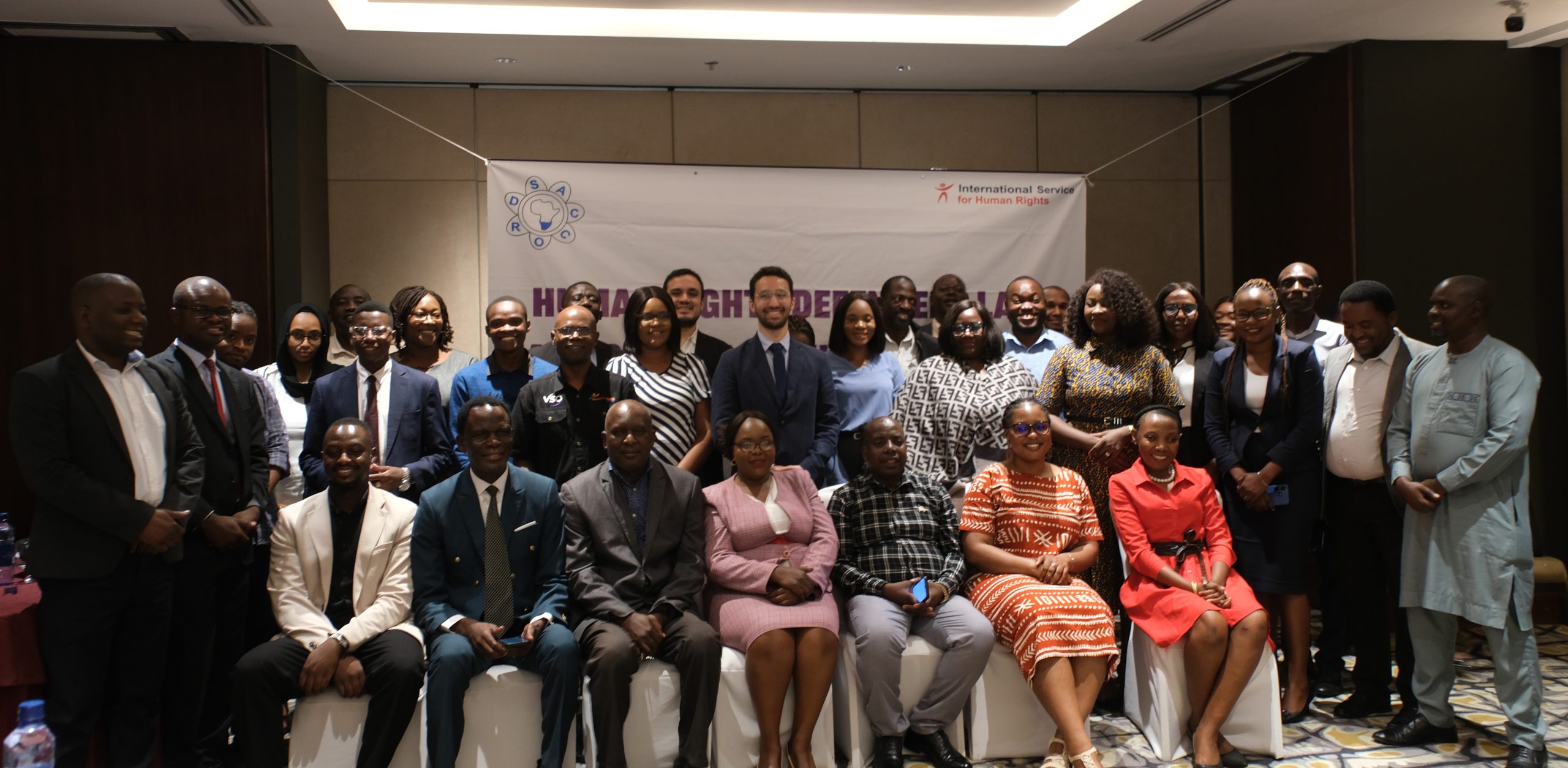On 13 July, ISHR delivered its statement on the situation of human rights in Africa, with a particular focus on the challenges faced by human rights defenders during the COVID-19 pandemic.
After congratulating and welcoming the new Commissioners swore in during the 28th extraordinary session of the ACHPR, ISHR complimented the Commission for the organisation of its first ever ordinary session online. “Despite the challenges that it entails, it continues to guarantee the inclusion of civil society and ensure that it can express itself” said Adélaïde Etong Kame, ISHR Africa Programme Manager.
Since the start of 2020, Africa has faced the COVID-19 pandemic affecting all aspects of the lives of its citizens. This pandemic in particular required each State party to the African Charter to take specific measures to fight against the spread of the virus and ensure the safety of its population. Nevertheless, some States have used the situation and instrumentalize regulations which were initially intended to protect the population, to accentuate the repression against human rights defenders, further restrict the space of civil society and more broadly the enjoyment of many fundamental liberties. “Fighting Covid-19 should not be used as a pretext by authoritarian states to increase the adoption of liberticidal measures and stifle dissent” added Etong Kame.
“Even in a state of emergency, the use of force remains guided by the principles of legality, necessity, proportionality and precaution. The use of force and firearms must be avoided and all possible non-violent means must be exhausted before resorting to violent means. We therefore urge governments to condemn such actions and to hold agents accountable” emphasised Etong Kame.
In light of this, it was important to draw attention to the need for States which have made tremendous progress for the legislative protection of defenders in their country, or are on the verge to do so, that in such times they must not forget the commitments they made and stand by them. “It is important that these achievements are not destroyed or distorted by violations committed in the name of the fight against COVID-19. It is important that States continue to ensure the implementation of these laws during this time of crisis” said Etong Kame.
In Africa, civil society organisations are still working in a very restrictive environment, with fear dictating their every move, though they never lose track of their mission to work for a world that’s more just, equal and free for all.
Contact: Adélaïde Etong Kame, Africa Programme Manager, [email protected]
Photo: ISHR




